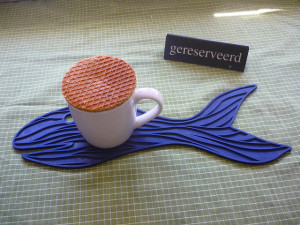to toil ![]()
[verb]
[zwoe-gen, zwoeg-de, ge-zwoegd]
"Zwoegen" is not something you do for fun. It involves real hard work. "Zwoegen" is mostly used in the physical sense, but can also be used when someone puts real serious efforts into achieving a certain goal. As opposed to the English "blood, toil, tears and sweat", Dutch leaves out the toil (as English does sometimes) and refer to "bloed, zweet en tranen" ("blood, sweat and tears").
Examples:
– "Na een ochtend zwoegen hadden we alle verhuisdozen in de vrachtwagen geladen."
("After a morning of toil we had loaded all the moving boxes into the truck.")
– "Lolu heeft moeten zwoegen om toegelaten te worden als comedian van Boom Chicago."
("Lolu has had to toil to get admitted as a comedian at Boom Chicago.")
– "Annie moest hard zwoegen om het wiskundetentamen op tijd af te krijgen."
("Annie had to work really hard to finish the maths exam on time.")
– "Na een avond en nacht zwoegen bereikten de sociale partners een akkoord over een nieuwe CAO."
("After an evening and a night of toil the social partners [trade unions and employer’s organisation] reached an agreement on a new labour condition agreement." Please note that CAO abbreviates "Collectieve ArbeidsOvereenkomst", meaning "Collective Labour Agreement".)
– "Chinese boeren zwoegen om de voedselvoorraad te vergroten."
("Chinese farmers toil to expand the food supply.")
Expressions:
– "Het is zwoegen, zwoegen en nog eens zwoegen": it’s extremely hard work.
Related words:
– Zweten: to sweat [verb] [zweette, heeft gezweet].
– Bloed: blood [noun] [het bloed, <no plural>].
– Traan: tear [noun] [de traan, de tranen].

 You will hear both “reserveren” and “een reservering maken”, but “reserveren” is more common. The past participle “gereserveerd” is also used as an adjective or adverb, see the Related words.
You will hear both “reserveren” and “een reservering maken”, but “reserveren” is more common. The past participle “gereserveerd” is also used as an adjective or adverb, see the Related words.

